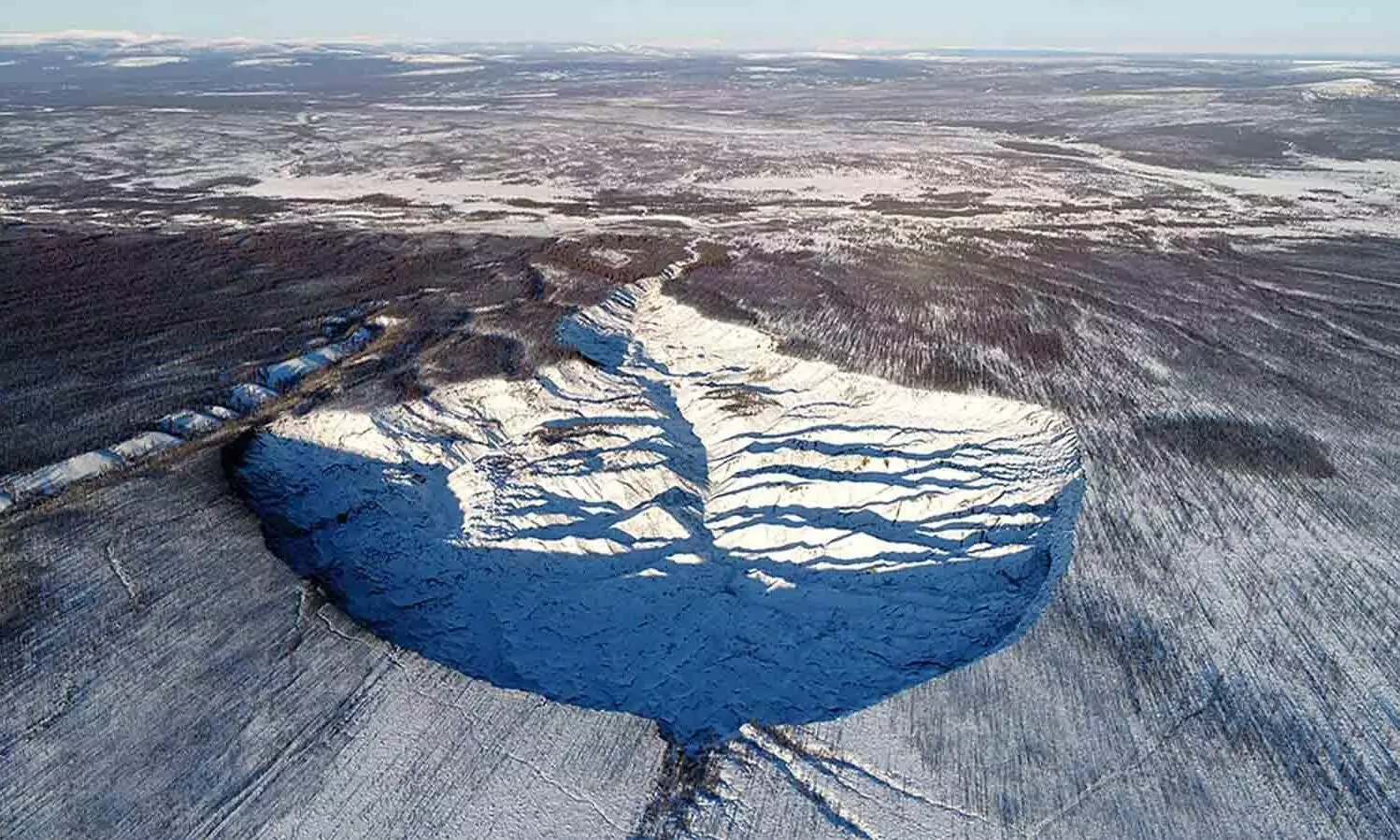
World's largest frozen crater in Russia shows signs of dangerous thawing
text_fieldsMoscow: The climate crisis and global warming have reached the largest frozen crater in the world, popularly known as 'the gateway to the underworld'. The Batagaika crater, stretching one kilometre in Russia's Far East, is the largest permafrost crater.
A recently released stunning drone footage of the awe-inspiring Batagaika crater shows the mega slump that has been forming over the years due to the thawing of permafrost, which covers about 65% of Russia's landmass.
The crater's origin can be traced back to the 1960s when the surrounding forest was cleared, and the permafrost beneath began to melt, causing the ground to sink. It first appeared as a ravine but has since expanded significantly, and locals refer to it as "the cave-in."
Climate scientists warn that the rapid expansion of the crater is a worrying sign of the dangers posed by thawing permafrost. Russia is experiencing warming at a rate at least 2.5 times faster than the global average, leading to the melting of long-frozen tundra. As the permafrost thaws, it releases greenhouse gases stored in the soil, contributing to global warming.
Nikita Tananayev, the lead researcher at the Melnikov Permafrost Institute in Yakutsk, stated that the formation of more mega-slumps like the Batagaika crater is inevitable as temperatures rise and human activities exert more pressure on the environment, reported Reuters.
Thawing permafrost has already caused significant challenges in northern and northeastern Russia. The impact includes buckling roadways, damaging buildings, disrupting pipelines, and contributing to the intensification of vast wildfires in the region.
While the Batagaika crater has become an attraction for tourists, its rapid expansion is a concerning sign of the impact of climate change. The exact rate of its expansion remains uncertain, but experts note that the permafrost's soil, up to 100 metres deep in some parts, contains a substantial amount of organic carbon. As the permafrost thaws, this carbon will be released into the atmosphere, further accelerating global warming.
Scientists predict that with increasing temperatures, the crater's expansion will occur at a higher rate, exacerbating climate warming in the coming years.






















